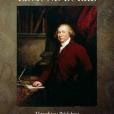《Selections from the Speeches and Writings of Edmund Burke》是一本圖書。
基本介紹
- 外文名:Selections from the Speeches and Writings of Edmund Burke
- 出版社:Theophania Publishing
- ISBN:9781515337072
內容簡介
"Democracy is the most monstrous of all governments, because it is impossible at once to act and control; and, consequently, the Sovereign Power is then left without any restraint whatever. That form of government is the best which places the efficient direction in the hands of the aristocracy, subjecting them in its exercise to the control of the people at large." -Sir James M...(展開全部) "Democracy is the most monstrous of all governments, because it is impossible at once to act and control; and, consequently, the Sovereign Power is then left without any restraint whatever. That form of government is the best which places the efficient direction in the hands of the aristocracy, subjecting them in its exercise to the control of the people at large." -Sir James Mackintosh. The intellectual homage of more than half a century has assigned to Edmund Burke a lofty pre-eminence in the aristocracy of mind, and we may justly assume succeeding ages will confirm the judgment which the Past has thus pronounced. His biographical history is so popularly known, that it is almost superfluous to record it in this brief introduction. It may, however, be summed up in a few sentences. He was born at Dublin in 1730. His father was an attorney in extensive practice, and his mother's maiden name was Nogle, whose family was respectable, and resided near Castletown, Roche, where Burke himself received five years of boyish education under the guidance of a rustic schoolmaster. He was entered at Trinity College, Dublin, in 1746, but only remained there until 1749. In 1753 he became a member of the Middle Temple, and maintained himself chiefly by literary toil. Bristol did itself the honour to elect him for her representative in 1774, and after years of splendid usefulness and mental triumph, as an orator, statesman, and patriot, he retired to his favourite retreat, Beaconsfield, in Buckinghamshire, where he died on July 9th, 1797. He was buried here; and the pilgrim who visits the grave of this illustrious man, when he gazes on the simple tomb which marks the earthly resting place of himself, brother, son, and widow, may feelingly recall his own pathetic wish uttered some forty years before, in London: -"I would rather sleep in the southern corner of a little country churchyard, than in the tomb of the Capulets. I should like, however, that my dust should mingle with kindred dust. The good old expression, 'family burying-ground, ' has something pleasing in it, at least to me."

